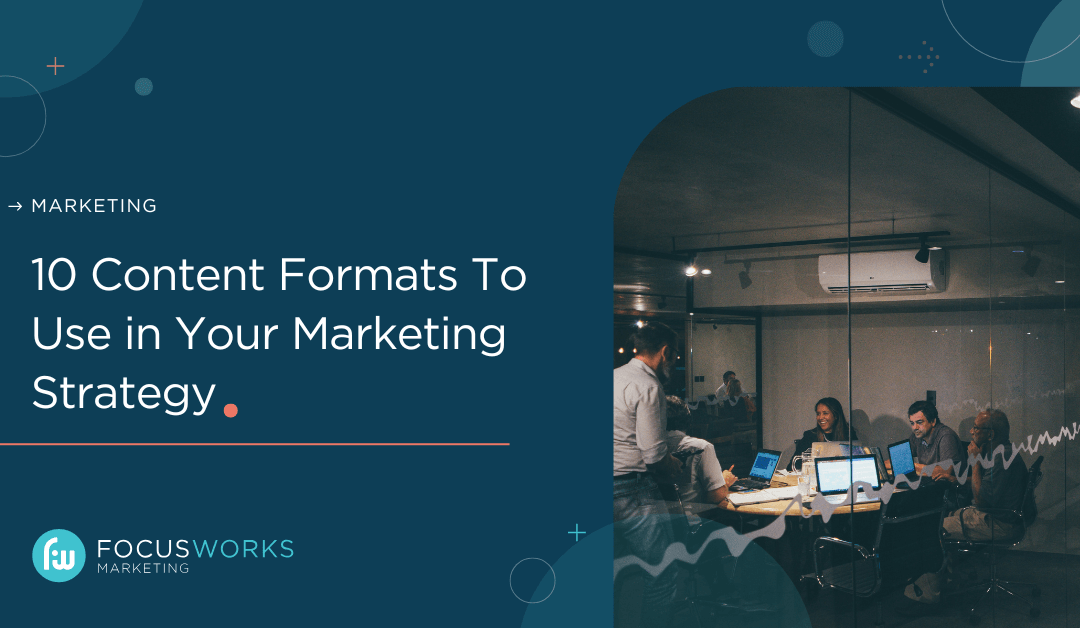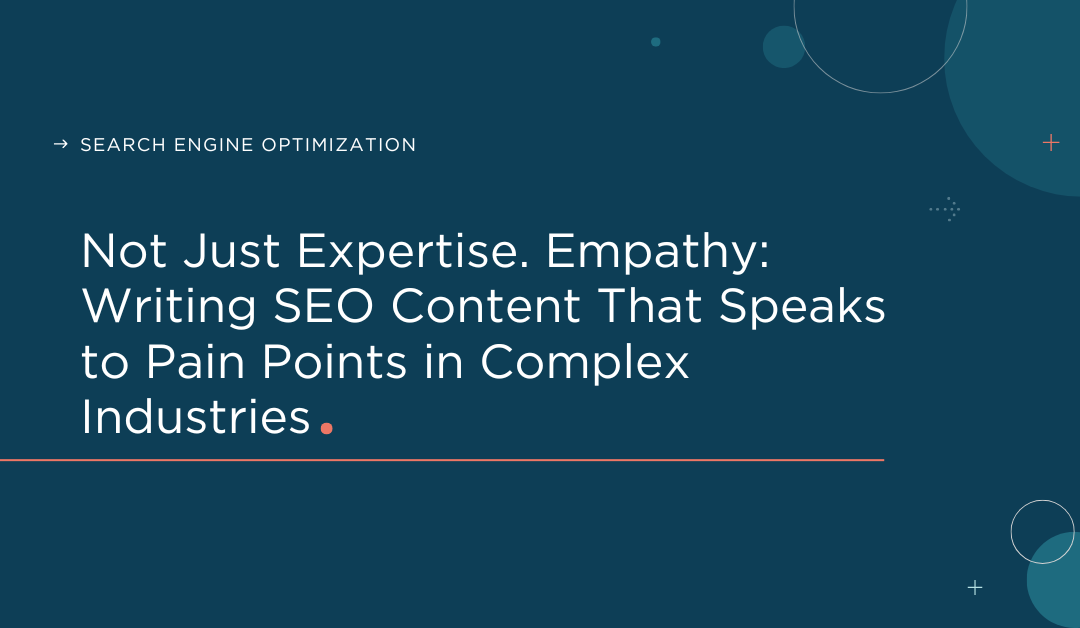When you’re networking or meeting with new personal injury clients, where should you keep your business cards?
a. Easily accessible in your wallet or pocket
b. At the bottom of your briefcase or purse (under a Target receipt and granola bar wrappers)
c. I’m not sure where they are, actually
The answer, clearly, is (a). Otherwise, what good would they do you?
So it is with your website. When it comes to drumming up new business and growing your personal injury firm, your website has to rank in online searches.
Why ranking is important for personal injury law firms
Ranking online—or, more technically, your search engine results page (SERP)—benefits any business. For personal injury law firms, though, the benefits of a strong law firm SEO strategy are especially pronounced.
A high placement on SERPs for a personal injury practice means the firm is immediately visible to potential clients at a critical decision-making moment. When someone suffers a personal injury, they often seek legal assistance immediately, and a firm that appears at the top of online searches stands a far greater chance of being selected for representation.
Moreover, personal injury law firms occupy one of the most competitive niches in the legal industry. To generate leads and grow your practice, you must show up faster and more authoritatively than your competition.
Factors in a ranking SEO strategy
Legal strategies are fact- and situation-specific. So are SEO strategies. Your strategy should consider goals, audience, region, sub-practice areas, budget, and more into consideration.
However, there are several elements that contribute to optimal outcomes.
High-quality content delivers value and engagement
The cornerstone of any effective SEO strategy, especially for personal injury law firms, is creating and sharing high-quality content.
The importance of content goes beyond ranking—it also helps create genuine connections with your audience and delivers guidance during some of the most challenging moments in their lives.
Let’s take a deeper look at the role of content in SEO:
Content communicates relevance and value to search engines
Search engines are designed to connect users with the content that satisfies their queries most effectively. For a personal injury lawyer, this means producing articles, blogs, or guides that not only answer common legal questions but do so in an easily understandable way.
Content encourages engagement
High-quality law firm content does more than just provide information; it engages the reader, drawing them into an interactive dialogue with your law firm.
This engagement keeps visitors on your website longer, which reduces bounce rates, a key indicator for search engines that users find value in your site. Low bounce rates signal to search engines that your site has pertinent and valuable resources, which factors into a higher ranking.
High-quality content leads to backlinks
High-quality content attracts backlinks. Other websites, bloggers, or social media platforms are more likely to link to your content if they find it relevant and valuable for their own audience.
When reputable sources choose to share a link from your website over another’s, it effectively endorses your site as a source of reliable information or services related to personal injury law.
Keyword research and optimization help you talk to your ideal clients
How do search engines know your website contains relevant information for your audience?
It all comes down to keywords. Using the right keywords throughout your site ensures that your website shows up in the first place and in front of the right people.
Here’s an example. Say your personal injury practice focuses on medical malpractice cases but all you have is generic content about personal injury. You could end up chasing high-competition keywords and missing the opportunity to connect with the clients you really want to work with.
Your web content should always align with what your ideal clients are looking for. How do you make that happen? We have some SEO tips to help.
Use keyword research tools
These digital tools unearth relevant, high-volume keywords that might not be immediately obvious but can draw significant traffic to your website.
They provide insights into trending topics within your niche and user behavior patterns, which are essential for staying ahead in a competitive market.
Integrate long-tail keywords
Including detailed, longer phrases, known as long-tail keywords, in your strategy enables you to capitalize on more specific search queries, which often indicate higher user intent.
For example, users typing “how to obtain compensation after a car accident” show clear intent towards engaging services from someone knowledgeable about the legal processes after an accident.
Avoid keyword stuffing
While integrating targeted keywords is crucial to optimizing your site, forcing them repeatedly beyond what feels natural (known as keyword stuffing) should be avoided. Not only does this negatively affect readability, but your site could also be penalized and drop in rankings.
Don’t forget about local SEO optimization
Clients needing help with personal injury legal issues often—though not always—look for guidance from a local attorney. Most slip-and-fall clients, for example, benefit from someone who understands the local and state laws, legal processes, and more.
Local SEO strategies are indispensable here. With local SEO in their pocket, law firms can increase visibility in local search, boost qualified leads, and build trust and authority.
Here are some effective strategies to achieve this:
Optimizing your Google My Business (GMB) listing
Google’s own local business listing platform can boost your local visibility. An optimized GMB profile increases exposure to those searching specifically within your locale and provides details like name, address, and contact information to enhance accessibility.
Incorporating local keywords
When individuals perform searches, they often include specific geographical locations or community-relevant terms—a habit that can put you right where you need to be if you’re using the right local keywords.
For example, when individuals go online and search for services “near me” or add a location-specific keyword (e.g., “personal injury lawyer San Antonio”), local SEO helps ensure that your firm shows up among the top choices.
Building local backlinks
Backlinks serve as endorsements of trust from other sites, signaling your site’s credibility and authority to search engines.
Aim to foster relationships with local institutions, news outlets, or other businesses that can refer online traffic back to your site via these links. This type of link-building is a great way to build trust in the community.
Work with an SEO Agency for marketing help
The intricacies of search engine optimization can create a very real challenge for many law firms. Achieving a high ranking on search engine results pages (SERPs) demands an understanding of ever-changing algorithms and a consistent and comprehensive strategy.
Outsourcing SEO tasks to an experienced legal SEO marketing agency doesn’t just ensure that they’re handled properly; it also frees up valuable time for you to focus on what you do best—running your law firm.
Selecting the right SEO marketing company requires careful consideration and a bit of research. However, doing so is a strategic move that brings unparalleled expertise to your digital strategy, significantly boosting your online presence while allowing you to focus on core business priorities.
Contact FocusWorks Marketing for help with SEO strategy
Outranking competitors in the digital world is vital for your personal injury law firm’s website and your firm’s continued success. An effective SEO campaign builds authority, connects you with potential clients when they’re looking for services like yours, and ultimately drives growth.
To stay ahead of the competition, contact us today for your free SEO audit. Together, we can discuss how our tailored SEO strategies can raise your law firm’s visibility.



